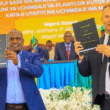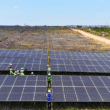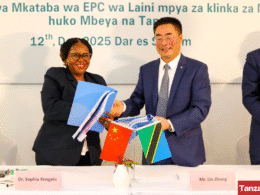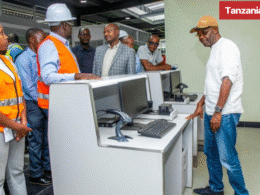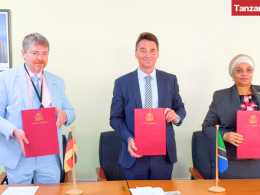TANZANIAINVEST interviewed Mr. Kesogukewele Msita, Executive Secretary of the National Construction Council (NCC), to learn more about the investment framework and opportunities in the growing Tanzania construction sector.
TI: What is the construction sector’s current capacity to support Tanzania’s fast economic growth?
Kesogukewele Msita – National Construction Council: The construction sector has, currently, the required numbers of contractors and consultants to support socio-economic initiatives.
I, however, hasten to add that there is a need for productivity improvements in order to achieve efficiency gains and value for money.
TI: What is the role the private sector is expected to play in Tanzania’s economic growth?
KM: The government is not supposed to be doing business; it requires the private sector to provide contracting and consulting services as well as the supply of building inputs.
{xtypo_quote_right}The private sector is now considered to be the engine of growth in Tanzania.{/xtypo_quote_right}The private sector is now considered to be the engine of growth in Tanzania.
TI: Why was the National Construction Council established and what have been its most significant achievements to date?
KM: The NCC was established for the purpose of spearheading the development of the construction industry in Tanzania.
Notable achievements include:
• The adoption of the Construction Industry Policy by the Government in 2003, which spearheaded the National Construction Industry Development Strategy of 1990;
• Affirmative development actions embodied in the Public Procurement Act of 2004;
• The establishment of regulatory bodies (Architects and Quantity Surveyors Registration Board, Contractors Registration Board, and Engineers Registration Board); and
• The establishment of professional and trade associations such as the Architects Association of Tanzania, the Association of Consulting Engineers of Tanzania, the Tanzania Civil Engineering Association, the Tanzania Institute of Arbitrators, the Tanzania Institute of Quantity Surveyors, and the Construction Industry Development Fund.
The NCC has also published a number of technical guidelines, which offers various training programmes, provides advisory services, and facilitates settlement of disputes.
TI: What are the main challenges the sector is facing and what is the NCC doing to ensure they are overcome?
KM: The main challenges facing the sector are the need to achieve higher levels productivity and improved quality in order for clients to derive value for money and as a drive towards international competitiveness, as well as to be able to corner the lion’s share of the local market, which is currently the domain of foreigners despite their low numerical strength.
These challenges shall be met and overcome by implementing the Construction Industry Policy as it provides a holistic approach in dealing with any impediments.
TI: Where are the main opportunities for foreign companies and investors in the construction sector in Tanzania?
KM: The main opportunities for foreign companies and investors are in physical infrastructure developments that include roads and bridges, airports, electrical power generation and distribution, railways, ports, educational and health facilities, tourism facilities (hotels and recreational facilities), water and waste water management, real estate, construction equipment, and production of building and supply materials and components.
TI: What benefits will foreign investors derive from partnering with local companies?
KM: Partnering with local companies provides the benefits of knowledge of the market, realistic viability assessment of investments, lowering of overhead costs, and contribution to social obligations of empowerment.
TI: What would be your piece of advice to investors interested in Tanzania?{xtypo_quote_right}Partnering with local companies provides the benefits of knowledge of the market, realistic viability assessment of investments, lowering of overhead costs, and contribution to social obligations of empowerment.{/xtypo_quote_right}
KM: Come and invest in Tanzania as there are ample investment opportunities.
Tanzania is continuously improving the investment climate and it has an availability of high-level trained manpower.


